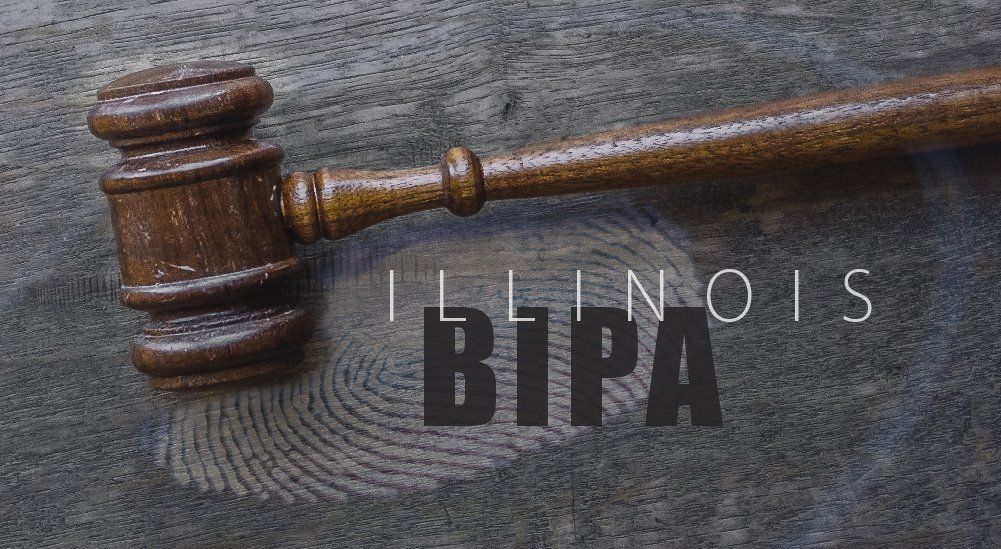Keeping the Floodgates Open – Illinois Supreme Court Rules that Employee BIPA Claims Are Not Barred by Worker’s Compensation Act

In recent years, there has been a proliferation of lawsuits under the Illinois Biometric Information Privacy Act, 701 ILCS 14/1 et seq., commonly known as “BIPA.” BIPA generally establishes certain privacy rights regarding the use of a consumer’s or employee’s biometric data, such as fingerprints, and gives them the right to sue if those rights have been violated. This has led to widespread litigation over several issues pertaining to BIPA including its scope. On February 3, 2022, the Illinois Supreme Court definitively answered one of those questions by holding that the Illinois Worker’s Compensation Act, 820 ILCS 305/1, et seq., does not bar employee statutory damages claims under BIPA. See McDonald v. Symphony Bronzeville Park, 2022 IL 126511.
In McDonald, the Court only decided one specific question presented to it: whether the Worker’s Compensation Act barred employee BIPA claims. The plaintiff (McDonald) filed a class action suit against her employer (Bronzeville), arguing that while Bronzeville required her to scan her fingerprint when she clocked in and out of work, she did not sign any release giving them consent to store her fingerprint, nor was she told how long they would store it. Both of these actions were required under BIPA and could entitle her to statutory damages of $1,000.00 or even up to $5,000.00 per violation, as well as reimbursement for her attorneys’ fees and costs.
Bronzeville, however, argued that as an employee, McDonald’s claims were barred by the Worker’s Compensation Act, which has an exclusivity provision barring “common law or statutory right[s]” to seek damages from an employer for injuries sustained at work. The trial court “certified” this question for appeal, meaning that even though the case was not finished, an appeals court could address this specific legal issue. The appellate court held that the Worker’s Compensation Act did not preclude BIPA lawsuits because the type of privacy injury at issue in BIPA simply did not fit within the scope of the Worker’s Compensation Act.
Upon further appeal, the Illinois Supreme Court agreed after examining both the Worker’s Compensation Act and BIPA. Specifically, BIPA was enacted to protect individuals’ rights to their own biometric data by requiring certain safeguards for anyone using that data. The Worker’s Compensation Act, on the other hand, provides financial protection to workers for accidental injuries suffered during the course of their employment.
While Illinois courts have sometimes found that certain types of lawsuits were barred by the Worker’s Compensation Act’s exclusivity provision, those other statutes usually addressed physical injuries, such as requiring scaffolds to be used in a safe manner. The Worker’s Compensation Act was enacted as an alternative to private lawsuits by employees injured on the job and provides a no-fault method of compensating them for those injuries. While it made sense to bar lawsuits under other statutes that sought remedies for on-the-job injuries, this exclusivity did not apply if, among other things, the injury was not “compensable” under the Worker’s Compensation Act.
Here, the Court drew the line by noting the Worker’s Compensation Act’s purpose of giving injured workers financial protection until they could return to work. While claims involving psychological rather than physical harm were sometimes excluded, BIPA claims involved neither physical nor psychological harm – notably, the plaintiff had amended her claim to no longer argue she suffered mental anguish from these BIPA violations. Instead, BIPA creates statutory damages as a remedy for a plaintiff’s “loss of the ability to maintain her privacy rights.” Accordingly, the plaintiff’s BIPA injuries were not within the scope of the Worker’s Compensation Act and her lawsuit could proceed.
The Court declined to go beyond answering this specific question, and there remain numerous outstanding questions regarding BIPA, including the correct statute of limitations and the exact meaning of the “$1,000.00 per violation” damages provision. However, it is difficult to understate the impact of this recent decision: had the Court decided the other way, employees would have been unable to maintain private BIPA lawsuits against their employers. As a result, the numerous pending and future employment-related BIPA lawsuits will continue to proceed, and employers should be mindful both of their obligations under BIPA and how to defend themselves against any claims before they took the proper measures to safeguard employees’ biometric data.
If you have questions or would like more information on this subject, please feel free to contact attorney Thomas Fox at 847-705-7555 or tfox@lavellelaw.com.
More News & Resources
Lavelle Law News and Events












